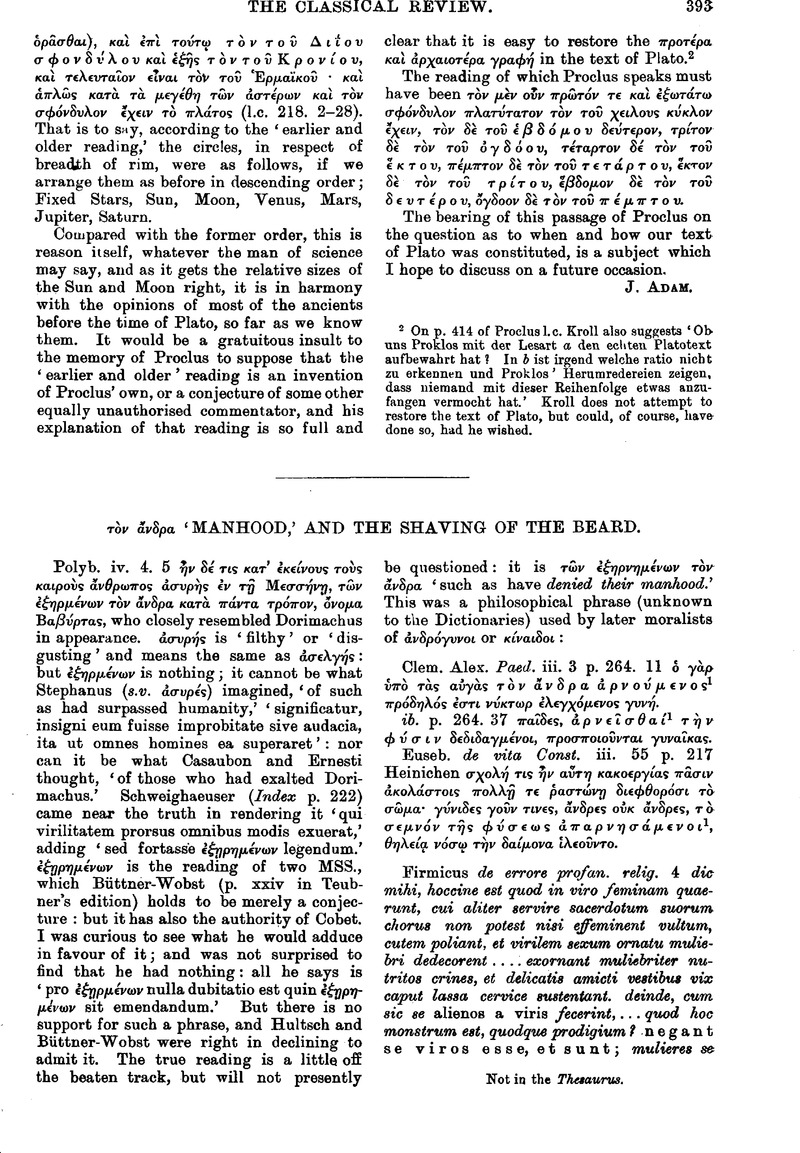No CrossRef data available.
Article contents
τν ἄνδρα ‘Manhood,’ and the Shaving of the Beard
Published online by Cambridge University Press: 27 October 2009
Abstract

- Type
- Original Contributions
- Information
- Copyright
- Copyright © The Classical Association 1901
References
page 394 note 1 ὑπ λαβρττου in this edition, but rightly translated ‘pro ista vestra delicatissima vita.’ —In case they have not been made, the following corrections are worth noting: p. 91 οὐ πντως (as suggested, or πνυ) ![]() for αντες and πεποινμνοι: p. 140
for αντες and πεποινμνοι: p. 140 ![]() (the translation has ‘ famem vexatricem mortalium’).
(the translation has ‘ famem vexatricem mortalium’).
page 394 note 2 Pythagoreans, later at any rate (Ath. 163 e, f), wore the rest of their hair long too: Stoics cut it close (Jahn, Persius p. 155, Orelli-Mewes on Hor. Ep. i: 18. 7). κομτης commonly implied κναιδος, which is the point of Caracalla's contemptuous observation on Philiscus with his effeminate mien and voice, ![]() (Philostr. Vit. Soph. ii. 30 p. 262 Dübner).
(Philostr. Vit. Soph. ii. 30 p. 262 Dübner).
page 395 note 1 Wendland Quaestiones Musonianae (noticed by Prof. Mayor in Class. Rev. I p. 74).
page 395 note 2 Cf. Dio. Chrys. II p. 29 R.  , which last seven words may very well be verse.
, which last seven words may very well be verse.
page 396 note 1 For instance in Aesch. Cho. 956 I see some editors content to acquiesce in κρατεῖται τ θεῖον. Surely a strange kind of ![]() , and a strange form of Te Deum! But it would also be a contradiction in terms. From Xenophanes downwards the very condition which defined and limited τ θεῖον was τ κρατεῖν:—would they not rather express their triumphant exultation by exclaiming
, and a strange form of Te Deum! But it would also be a contradiction in terms. From Xenophanes downwards the very condition which defined and limited τ θεῖον was τ κρατεῖν:—would they not rather express their triumphant exultation by exclaiming ![]() ?
?


